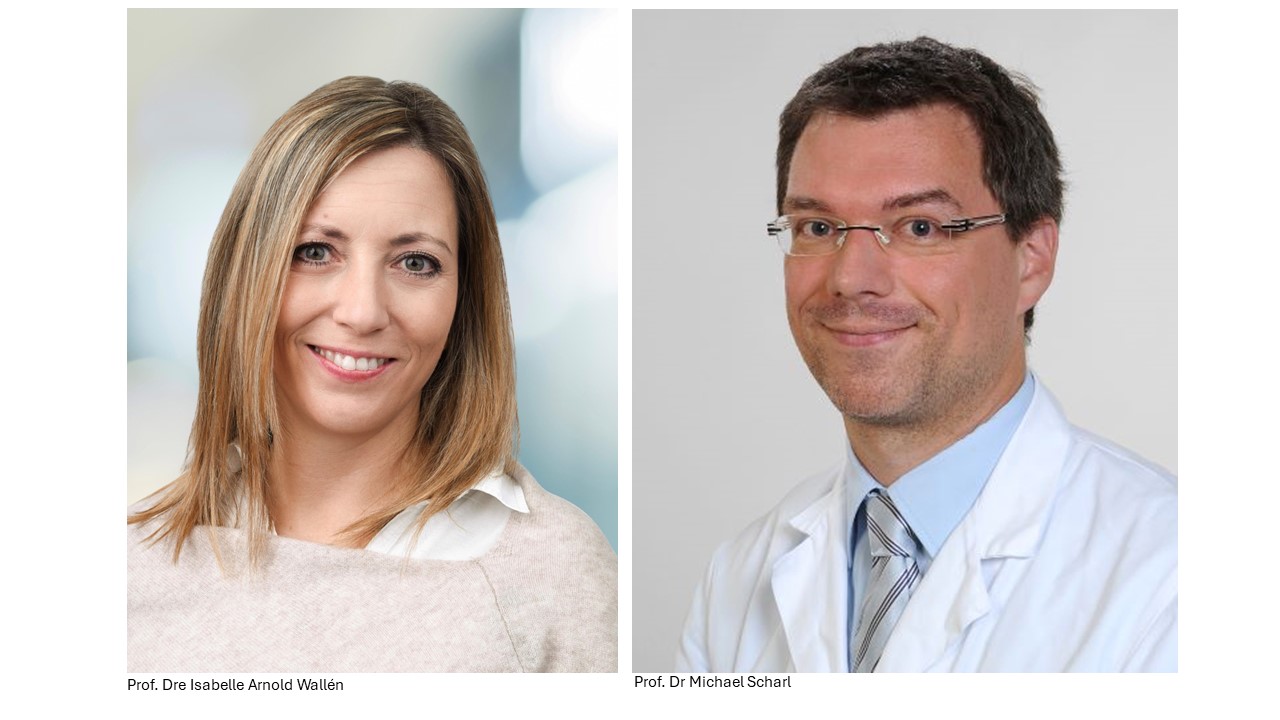Colorectal Cancer – Prof. Dr Michael Scharl (UZH) and Prof. Dr Isabelle Arnold Wallén (UZH)
Development of new therapy for patients with resistant colorectal cancer

Colorectal cancer (CRC) is the second most common cancer and is responsible for cancer-related deaths affecting men and women on a global scale. Even though therapeutic options have improved, including the promising introduction of immunotherapies, only a fraction of patients benefit or even respond to current treatments. For instance, checkpoint inhibitor therapy benefits only 5% of CRC patients so far. This collaboration aims to develop much needed novel therapeutic options, particularly ones adapted to the individual patient, in order to ensure higher efficacy and safety. Their goal is a better the quality of life and prognosis for CRC patients.
It has been shown that patients affected with CRC have an altered intestinal microbiota composition that may contribute to cancer pathogenesis, treatment resistance, and increased toxicity of currently used cancer treatments. Promising data now show that specific bacteria are able to modulate antitumor immune responses and may, therefore, serve as potential therapeutic agents or adjuvants for new therapies. Further new studies have established a link between higher levels of intratumoral eosinophils (a type of white blood cell with specialized immune function) and a favorable prognosis. The eosinophil levels correlate with enhanced survival of CRC patients.
The strategic aim of this project is to further the understanding of the patient’s microbiome and its interaction with the eosinophils to explore their potential roles as molecular biomarkers that could predict disease course and therapy response. Ultimately, this could lead to personalized microbiota-based precision medicine for CRC patients.

